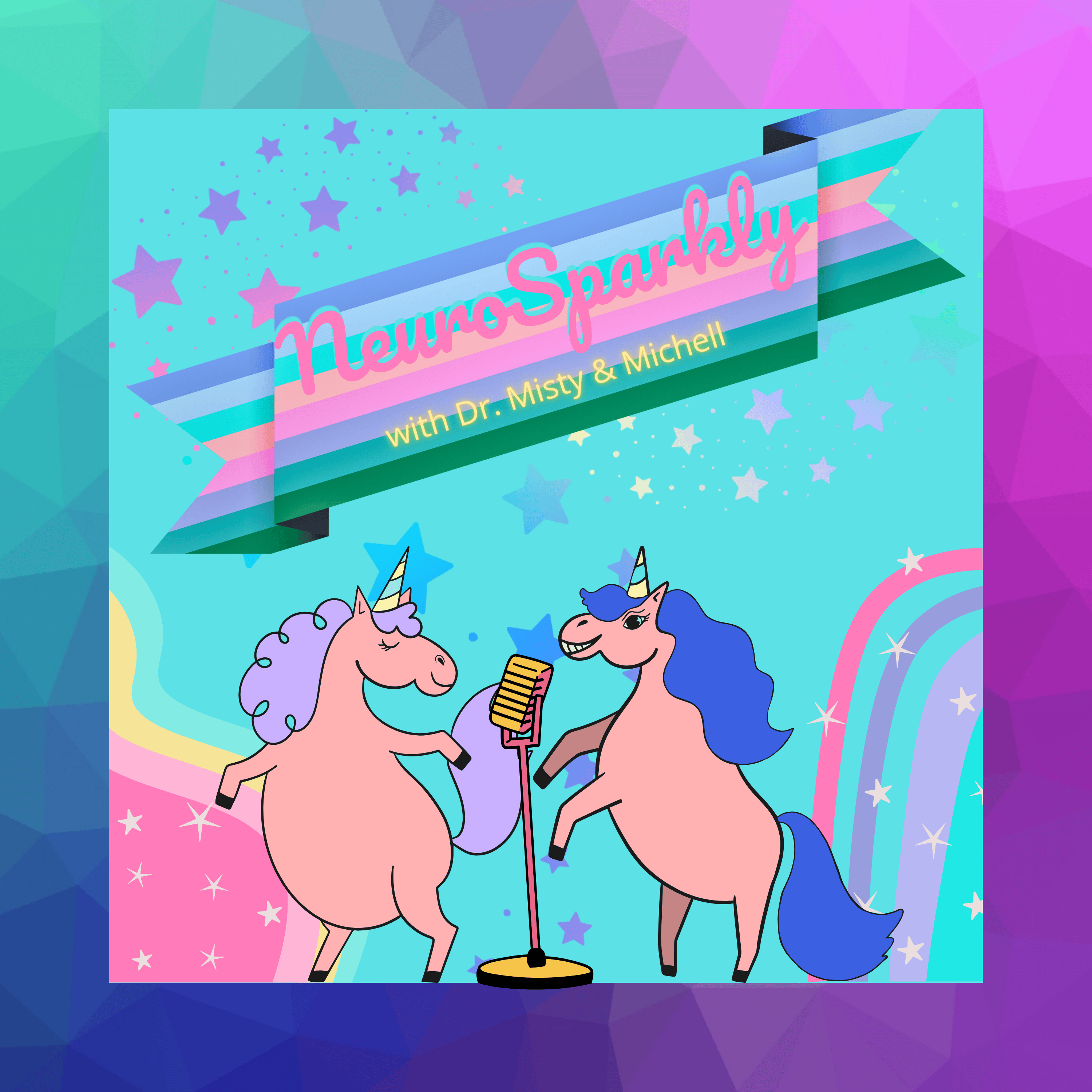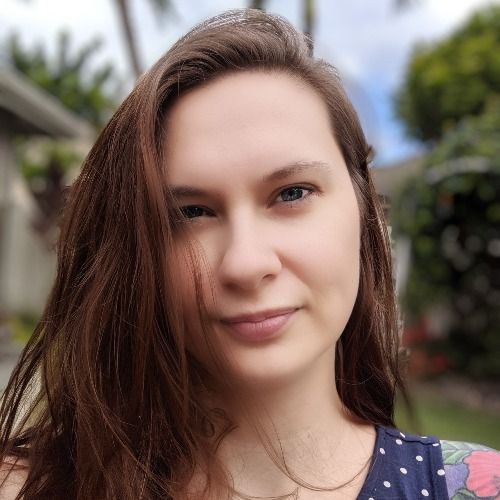Episode 4
Ep. 4: Sensory Shenanigans
In this week's episode, Dr. Misty and Michell, introduce guest Sarah, a therapist specializing in neurodiversity, trauma, and grief. The discussion delves into personal and professional experiences with sensory overload and how it intersects with neurodivergence and mental health. Key topics include coping mechanisms for sensory triggers, the impact of sensory experiences on neurodivergence, the challenges of sensorimotor OCD, and considerations for sensory needs in sexual relationships. The hosts also mention their newsletter, offering additional resources on sensory needs and overload.
Transcript
Pretty tough.
[: [: [: [: [:So she came in the house. She was outside playing in her yard with her dad, and then she came in the house and she says, mama, there's an animal over there. Mama, look at the animal. Mama, look at the animal. Mama, look at.
She was going, you know, she's three, but she'll keep going until I acknowledge, yes, I see it. And then, you know, she gets on a little tangent about something else, and then she goes back to it.
Animal. Mama. Look, I don't know what was going on with her and this animal, but it lasted for, like, 15 minutes. And I did not see an animal. I just said I saw the animal.
[: [: [:So I think we all can understand some sensory experiences that might be common with neurodivergency. I wonder, Sarah, do you have any personal experience or story besides the one that you just shared about a time where sensory issues were significantly affecting you?
[: [: [: [: [: [: [: [: [: [: [: [: [: [: [: [: [:I know you both know I do art, and that kind of started way back in elementary school, was like, that was how I would focus in class instead of taking notes, because if I tried to take notes, I couldn't hear the teacher, and if I just tried to listen to the teacher, I couldn't sit still or focus anyways.
Yeah. I don't know. I think common sugars, definitely sound. Smell is a huge one. I've noticed, like, popcorn, I might need to leave the room while it's in the microwave. Yeah. But I love eating it kind of a thing.
And then social battery. Yeah. Like, I definitely need to give myself time to transition from work to then socializing, like, with my partner and give myself time to, like, recharge.
[: [: [: [:Yeah, I think I feel okay. So another huge sensory trigger is a lot of, like, tactile sensory triggers. So, like, tags on clothing would be a huge one.
[: [: [: [: [: [: [: [: [: [: [: [: [: [:For sure, y'all. That's fighting the air. Absolutely.
[: [: [: [: [: [:I couldn't turn off my brain, but I liked the relaxation of it. But my brain was like, oh, we can obsess about everything in here.
[: [: [: [: [: [: [: [: [: [: [: [: [: [: [: [: [: [: [: [: [: [: [: [: [: [:Sometimes it feels like there's definitely separation between sensory experiences as how they relate to ADHD or autism. For me, of, like, if I'm wanting to focus on something, like, for example, if I'm wanting to listen to a new audiobook, I have to be doing something along with it or else I cannot focus on it. So I'll have the tv on mute and be playing a video game that I've played a million times over while listening to or cleaning the house while I'm listening. So almost like sensory, some sensory overload in that sense of, like, visually, I'm doing a lot. I'm using, like, motor skills and reaction times and whatnot to play video games, but it helps me to focus on what I'm listening to.
[: [: [: [: [: [: [: [: [: [: [: [: [: [: [: [: [:And it took me a minute to recognize that the number I was thinking of is not what I was verbalizing.
Yeah. Things like that would happen during tests all the time where it's like, I thought I got that right, or I felt really confident on it, and looking back, I'm like, where did I come up with that number?
Yeah.
[: [: [: [: [: [: [: [: [: [: [: [: [: [: [: [: [: [: [: [: [: [: [: [:Yeah, that's a really good point. That is a huge area to work on. There's even, like, a meme going around for autism questionnaires for adults where one of the questions is like, how do you feel about socks? And like, whoa, there's so many ways you could answer that. You know, you can be like, oh, I'm good with socks, you know, or I have come up with a whole system for how I interact with socks, and that's why I'm good with socks.
[: [: [: [: [:You know, it's important to know about yourself what your sensory needs are around, you know, touch and just physical relationships in general. And then being able to figure out a way to communicate that to partner can really enhance the experience for you. So if you're able to say, I like firm touch, but I really don't like light touch, it tickles and that makes me uncomfortable and then I tense up and then that's not going to put me in a sexy mood. That's like a really good able to describe to somebody that you're getting intimate with because then you can know that you can lean into their touch and you don't have to stay on guard because you're worried that they're going to touch you in a way that's going to make you feel uncomfortable just being able to communicate those needs. Or I don't do well with smells, so if you come to bed with a bunch of perfume on, it gonna kind of set me off and I'm not gonna be in the mood anymore. Something like that's important. Or some people like, you know, music playing, some people don't. Some people can't stand the sound of their own breathing when they're having sex. You know, sometimes maybe some music in the background might be helpful. So, yeah, just navigating the environment with your partner or partners in mind, I think is really helpful.
[:Well, I'm so glad that we have had this podcast today. And thank you again, Sarah, so much for joining us. I think this great information that I hope you'll really get a lot out of.
[: [: [: [:




